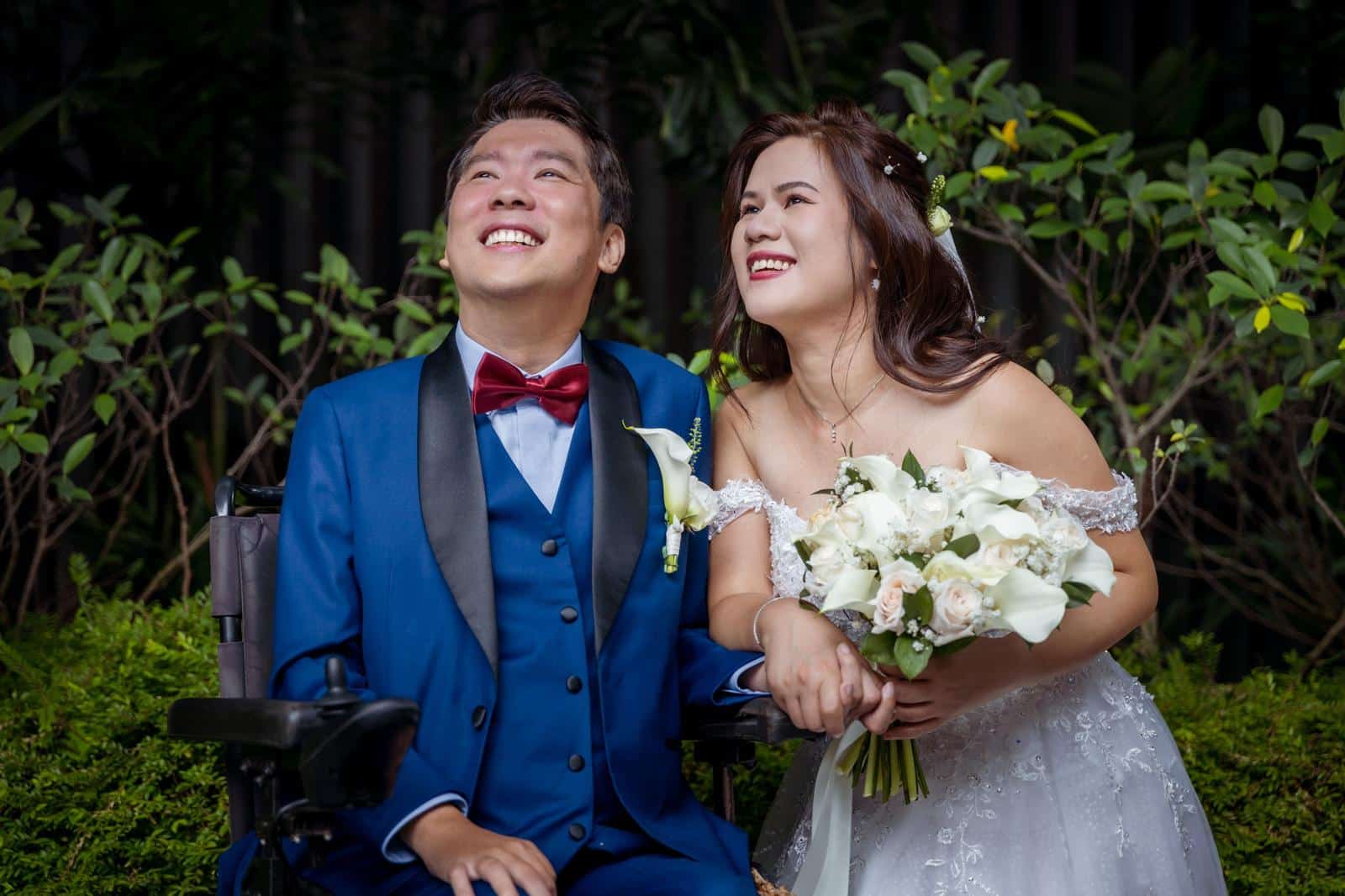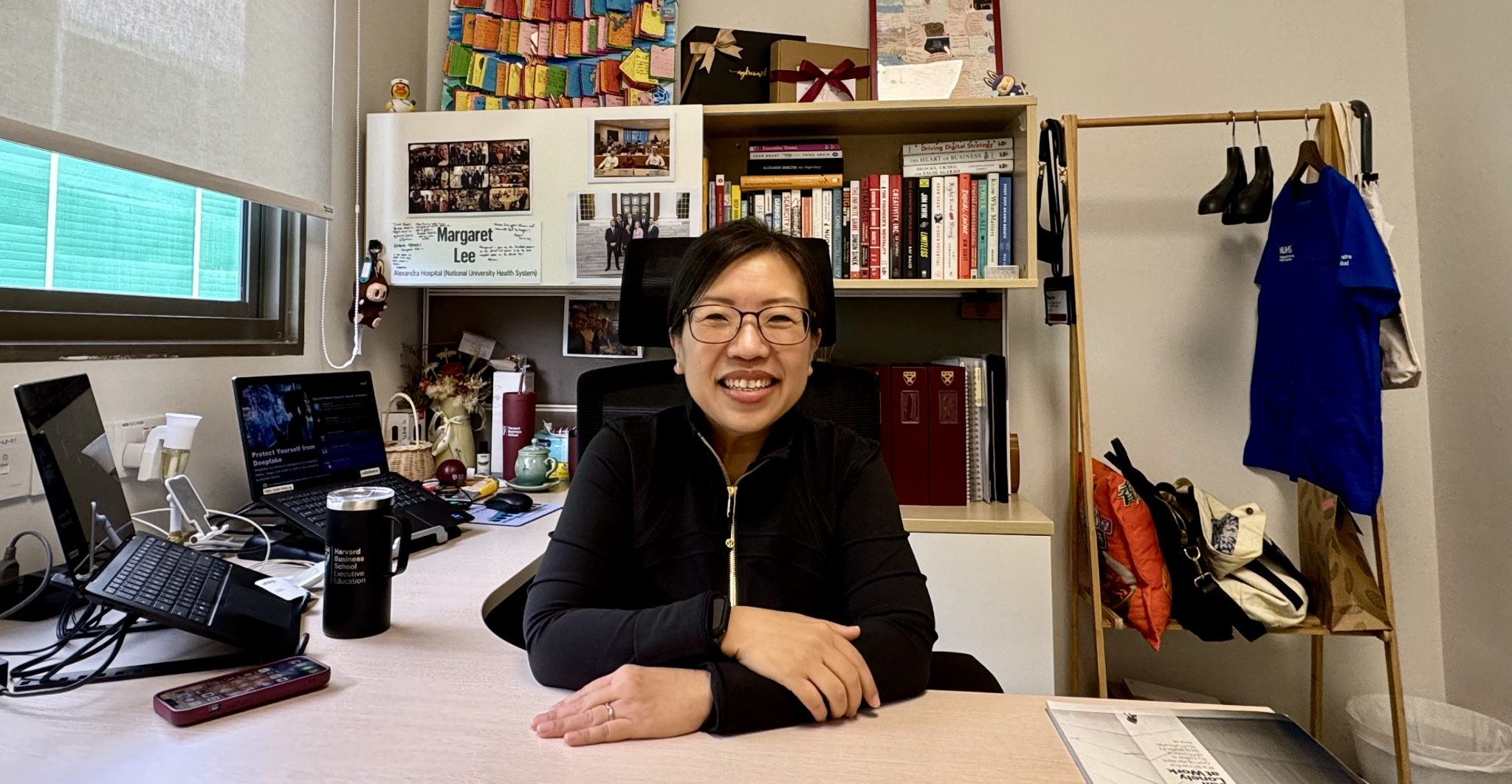“If these children with HIV can praise God, why can’t I?” cried out Radion’s Eugene Wee when his family lost everything
Angels, God's messengers of truth and light, still walk amongst us today. This Christmas, Salt&Light brings you the moving stories of five "Angels in our Midst".
by Juleen Shaw // December 20, 2019, 5:21 pm
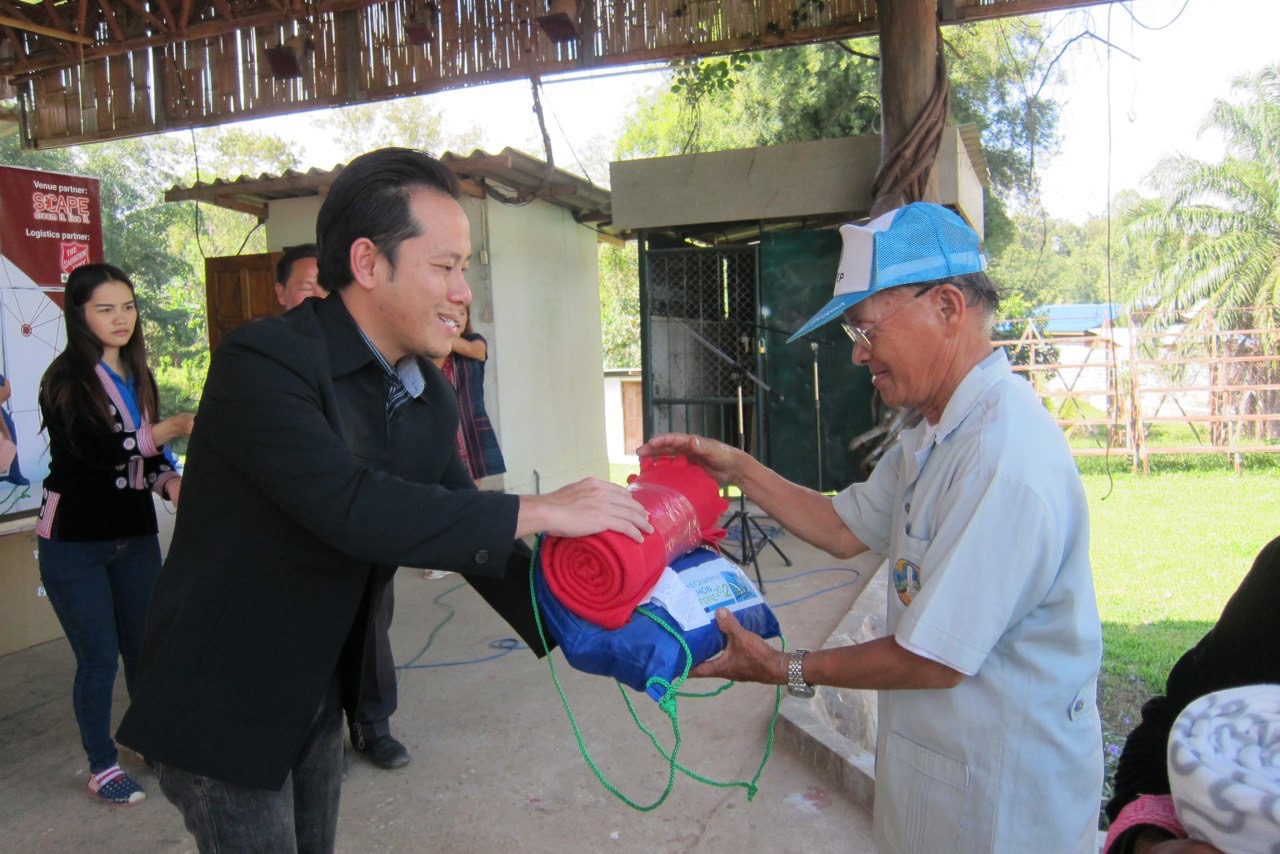
When Eugene Wee's family fortune turned, he told the Lord: "If you do not return my family's wealth, I would not be able to testify to any of your goodness.” But a delinquent child in an HIV centre changed his mind. Here, he is handing out relief packages to Thai villagers. All photos courtesy of Radion International.
Two young men were living it up at a trendy Singapore club. Drinks were flowing. Lights pulsating. Wall to wall people gyrating to electronic music.
And the oddest conversation took place.
“Hey, Eugene,” shouted one of the men to his buddy over the reverberating thumps of Daft Punk. “You’re weird. When you get intoxicated, you stand in the middle of the club and you keep talking about God, ‘Here we are, Christians in a club. Do you think everyone here knows the Gospel?’ It’s awkward, man.”
Looking back on his youth, Eugene Wee, now 38 and founder/executive director of award-winning non-profit aid agency, Radion International, sheepishly confesses: “I guess when a person gets intoxicated, our guard is down and we speak our whole mind.”
Even if he didn’t know it then, what was on Wee’s mind and in the deepest parts of his heart, even during what he calls his “wilderness years”, was God.
The vow
Wee grew up in a comfortable, non-Christian family.
In secondary three, he came to Christ and, at 16, made a vow to follow God regardless of the cost.
His parents noticed the dramatic change in him and started attending his Pentacostal church. In 1998, first his mum, then his dad, became Christians, followed by his older sister a year later.
“We were all serving in the church and everything felt right,” recalls Wee.
“I basically told the Lord, ‘If you do not return my family’s wealth, I will not be able to serve you.'”
Then the Asian Financial Crisis of 1997 hit and the stock market crashed.
“My father was a remisier. So we went from driving luxury cars to taking buses,” says Wee.
“During those years, I wondered, ‘God, if you said You are a faithful God, if you are a Lord that provides, well this is definitely not provision. How can I serve you in all good conscience? How can I tell people that you are a good God when I cannot fully understand what is happening?’
“I basically told the Lord, ‘If you do not return my family’s wealth, I will not be able to serve you. I would not be able to testify to any of your goodness.’”
Wee, who has a degree in business computing and information technology, went on to join the Republic of Singapore Navy as a naval combat officer. He spent the next three years steadily rising up the ranks, eventually being assigned a Ministry of Defence role in developing operational and training plans, before joining the corporate world as a business development head.
While he did well wherever he was placed, his life was in “the doldrums”, says Wee. Career success did not fill “this state of emptiness I felt”.
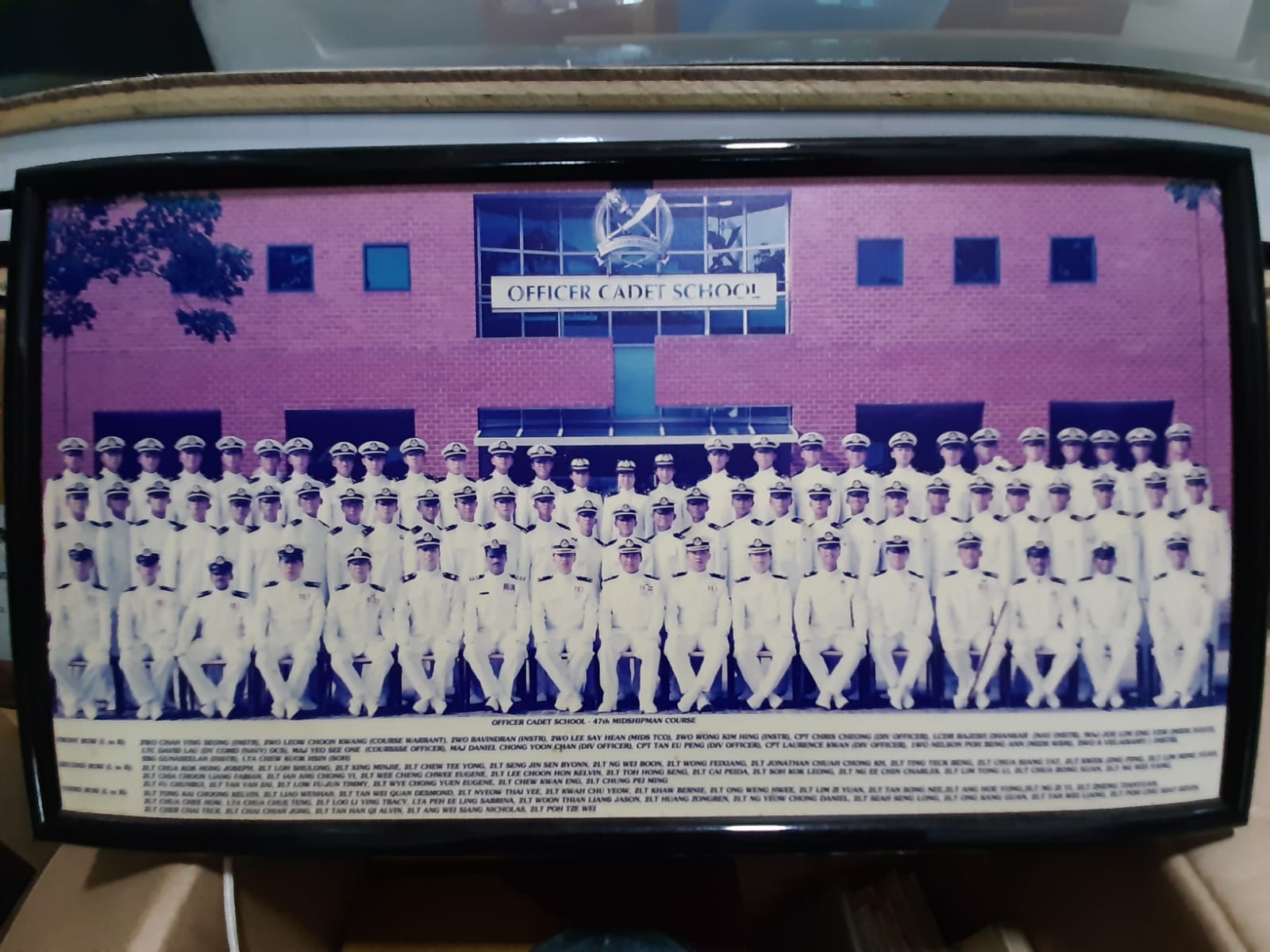
Eugene (centre of middle row) with his OCS batchmates.
It’s about time
In his search for a more purposeful life, he volunteered with a Christian humanitarian organisation serving children with HIV in northern Thailand.
“These children do not live very long, they have seen their peers dying … yet they can praise God, why can’t I?”
“These children do not live very long. But every night they would be worshipping, and every night I would be at the back of the hall thinking, ‘If the Lord has given them such a short lifespan and they know that their time on earth is limited – they have even seen their peers dying – yet they can praise God, why can’t I?’ Mine is just a financial loss.
“And it was a delinquent kid who actually turned my life around. She came and sat next to me and asked, ‘Eugene, are you a Christian?’
“All these years, since that point of family crisis, I had told the Lord that I cannot tell people that I’m a Christian because, while I fully believe that He is real, He had not ‘proven’ it to me.
“The girl’s question was probably the hardest question I’d ever had to answer. My previous job of handling million dollar contracts was easier than answering this question.
“She prompted me to think, ‘Maybe it’s about time I come back to Christ.’”
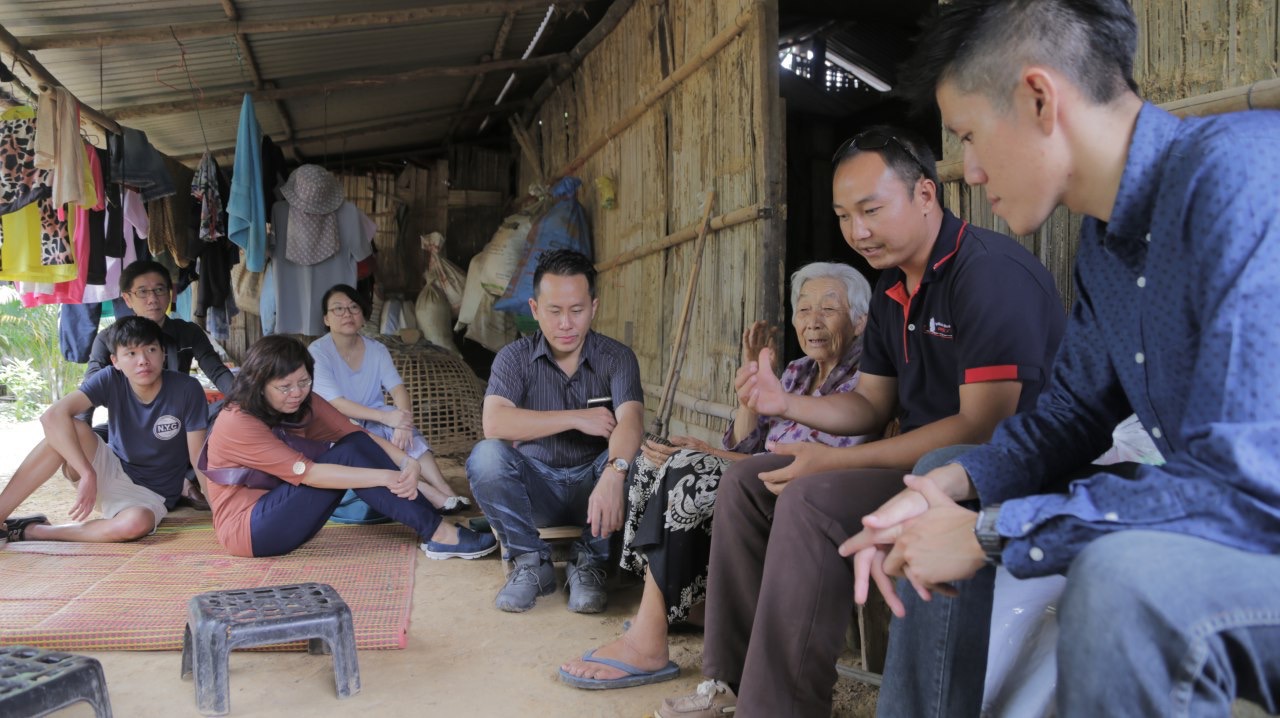
Wee (centre) leads Singapore volunteers on house visits to pray and care for abandoned elderly and at-risk youths in the village of Khek Noi.
His next volunteer stint at a Hmong refugee camp opened his eyes further.
“When I came back to Singapore, I did a bit more research on the Hmong refugees and I realised that the amount of abandonment, the amount of rejection, the amount of pain they have experienced is enormous.”
He and other volunteers delivered aid to the 8,900 refugees behind barbed wire, providing health screening for the children and ensuring they had some education.
Occasionally, for reasons unknown to them, the volunteers were not permitted to enter the camp, whereupon they would put up in a village called Khek Noi in the Petchabun area, just below the refugee camp.
While they were in the impoverished village one day, an old Hmong lady approached the volunteers and said: “I have seen your vehicles passing by our village to send relief up to the refugees. Have you thought of stopping by to help us?”
“In my mind, I was thinking, ‘How bad can your problems be? The refugees’ situation is life and death. They are hungry, only having a meal or two of half portions of rice every day. Can’t get any worse, right?’
“I was wrong.”
Anger and hopelessness
When Wee probed further, he realised that the village was one of the main transit points for drugs shuttled between the Golden Triangle and Bangkok.
“A big percentage of drugs switched hands in areas like these. You could see people trading and talking about drugs openly in the public spaces. Guns and violence were not uncommon. You would see kids on the streets highly intoxicated. It was like a walking zombie area.”
“Twenty-five percent of the children below the age of 16 were using drugs. And the starting age was six.”
Engaging with a local school to understand the extent of the problem, the volunteers did a survey which threw up alarming statistics.
Twenty-five percent of the children below the age of 16 were using drugs – anywhere from glue to methamphetamine to heroin.
And the average starting age was six.
“You could see the effects of drug use upon the villagers. You see families devastated.
“During our stay, there was a six-year-old girl whose body was found stuffed in the fence line between houses. Her attacker was a 17-year-old boy high on glue who had raped her, killed her and chewed up her entire face before shoving her body between two houses.
“You hear heartbreaking stories of pregnant women being stabbed and their bodies dumped in the forest. You have parents who were moving drugs and had to ‘disappear’ for good.”
Wee’s response was a mix of anger and helplessness.
Where others might have turned tail and run, Wee resolved to stay as “you realise that God loves them as much as He loves us”.
“There was just this immense amount of need. No one was doing anything, no one was stepping up, and you just have to say, ‘As a Christian, what can I do? With what I have with my life, let me do something’.”
Still, he struggled with the decision to cut short a promising career trajectory to go into full-time ministry.
“There was just this immense amount of need. No one was doing anything … As a Christian, what can I do?”
The biblical book of Haggai convinced him. In Haggai 1:8, God instructs His people, who had been building their own houses, to build His house. Wee made a bargain with God: If he heard the same verse the following week, he would go where God called.
The following week, the same preacher walked up to the pulpit, and read from Haggai 1:8.
Wee jokes with his Christian friends that when God called him, “tears rolled down my cheeks – tears of pain”.
That same week in 2007, at the age of 26, Wee turned his back on the corporate world, cancelled his order for a sportscar, sold his stock portfolio and started Christian non-profit agency Radion International with a friend.
Allowed to dream
Setting up office in Petchabun, they started an internet café for street kids, the first in the village, with four terminals. The café soon drew the village’s most notorious gangsters, aged 12 to 15. They ended up asking Wee to house them as their families had disowned them.
In stages, StreetKIDS! evolved to include a programme where a sponsor covers a child’s school fees, uniform costs, transportation, medical care, allowance and shelter. A blog Wee set up in 2008 to draw attention to the children’s needs in Petchabun secured Radion a 1:1 ratio of donors to children.
“I was never really a kids person. And I ended up in a ministry that’s predominantly a rescue and rehab programme for children,” says Wee ruefully.
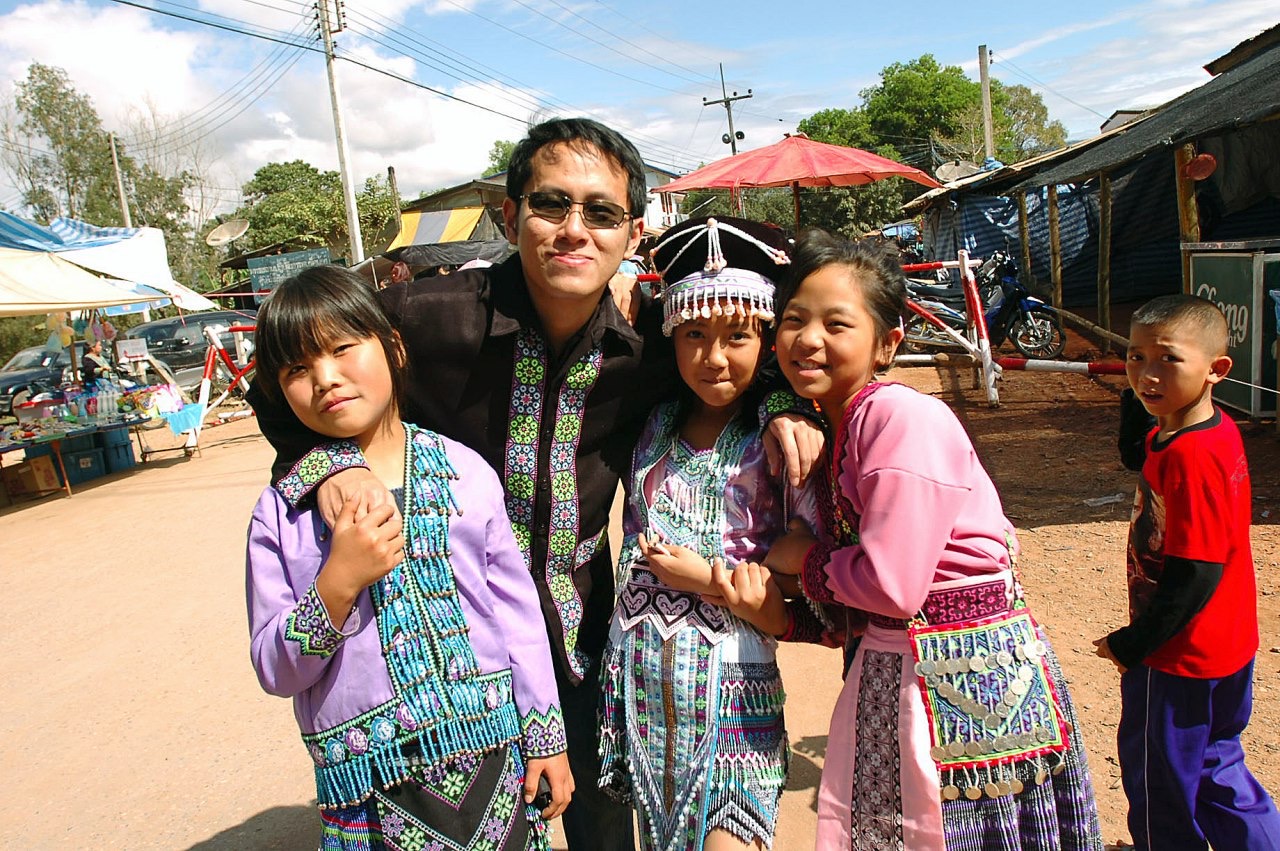
Eugene with children from Radion’s StreetKIDS! programme.
Subsequently, villagers alerted Radion to domestic violence cases. One of the worst cases of child abuse involved a stepfather who kept his three stepchildren in the jungle to look after his livestock, hitting and shooting at them at will.
“When we went to rescue them, the children had suffered immensely, struggling with basic social skills,” Wee recalls.
“You see the sparkle in their eyes and you realise that hope is the very thing that drives them to start on a new journey.”
Today, Radion International works in partnership with the local police and village chiefs. Through “an immense amount of effort and resources”, drug use in the village has plummeted by more than half. Radion’s work now extends to Chiangmai, in part because Wee wanted the village children to be exposed to a larger town, and to have bigger dreams.
“Early on we noted that there were some children whose socio-economic situation made them more inclined to drugs and to dropping out of school,” says Wee. “So we looked upstream and realised, Okay, if we can get the kids who are most at risk to see that the world is bigger than their village, they can start to dream.
“We asked the kids, ‘What do you want to be when you grow up?’ It never occurred to me that it was such a difficult question to answer. But the kids looked very puzzled and asked, ‘What do you mean dream?’ They had always been given to understand that they would grow up in the same way as their parents, follow them into a life of drugs, live in an impoverished community for the rest of their lives.
“But when they were encouraged to dream, you hear things like: ‘I want to be a teacher!’ ‘I want to be a fireman!’ ‘I want to be a shop owner and sell sweets!’
“You see the sparkle in their eyes and you realise that hope is the very thing that drives and empowers them to start on a new journey.”
“We were wrong”
But the first few years were rough.
When he “flushed out his financial reserves” to fund Radion, his parents “thought I had gone out of my mind”.
“They said, ‘Okay lah, maybe it’s just a midlife crisis, after one month you’ll be back.’ When I didn’t return, they extended that to six months, then after one year they realised I was still there.”
“You gave up your King Koil bed to sleep on the floor? And bathe in water infested with mosquito larvae?”
Wee was based in Petchabun but returned to Singapore four times a year to raise awareness for Radion’s work. For the first few years, he did not go home, even during Chinese New Year, because of his family’s objections. When he was in Singapore, he would sleep on the floor at the house of his old friend, Alvin. (Alvin Ong is currently the Country Manager in Radion’s Singapore office.)
“It was an emotionally tiring time – I was serving in the field, my family was not supportive, my church was unaware of Radion’s work.”
A turning point came when Wee’s mother, Christie Wee, 69, and father, Charlie Wee, 74, visited Petchabun to see Radion’s work for themselves.
Mrs Wee’s first comment when she saw her son’s living conditions were: “You gave up your King Koil bed to sleep on the floor? And bathe in water infested with mosquito larvae?” (“Actually sometimes there was fish in the tap water too. The water changes colour by the season,” Wee added.)
“But when they saw the mass food distribution to the elderly folks and families who did not have enough, my father said: ‘All these years, I’ve always thought that you are a very selfish person to leave your mum and dad behind and throw away your career. Now we see you are actually doing something that is more meaningful and more important. We were wrong.’ And they teared up.”
This is the first of a two-part story on Eugene Wee in our ‘Angels in our Midst’ Christmas series. You can read the second part here.
We are an independent, non-profit organisation that relies on the generosity of our readers, such as yourself, to continue serving the kingdom. Every dollar donated goes directly back into our editorial coverage.
Would you consider partnering with us in our kingdom work by supporting us financially, either as a one-off donation, or a recurring pledge?
Support Salt&Light